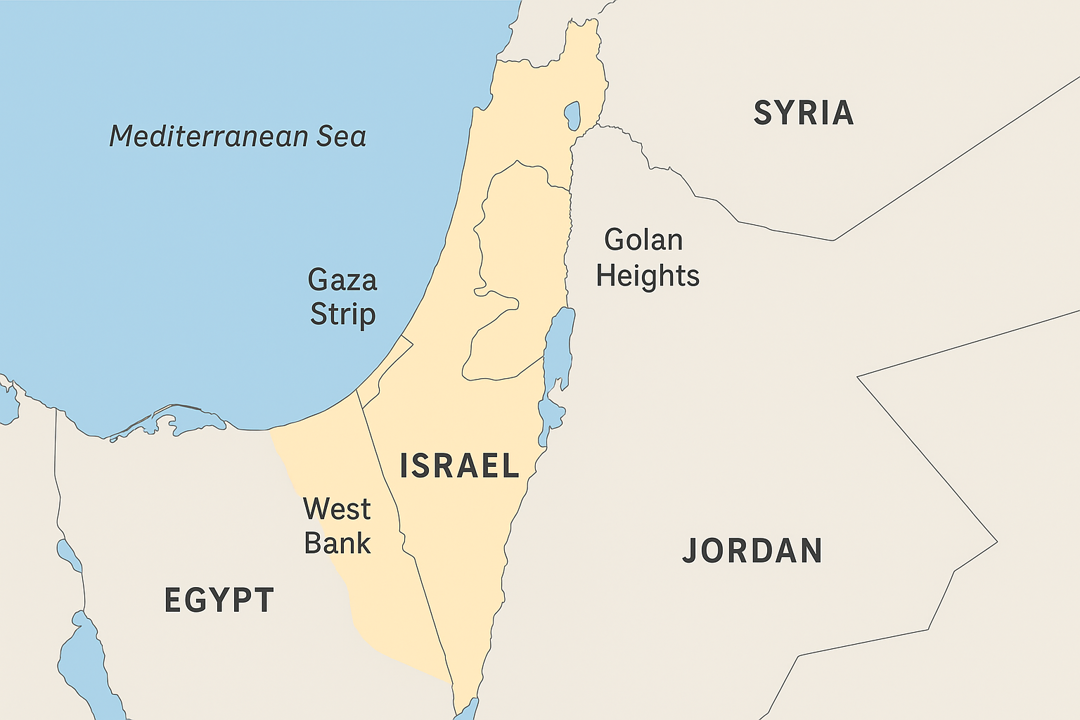
The Two Sides of the Coin: Holding Hamas and Israel Accountable
When we talk about Gaza, conversations often spiral into outrage, accusation, or political point-scoring. But for me, there’s one basic starting point: the ultimate objective should be that innocent people don’t suffer or die. Whether they’re Palestinian or Israeli, whether they’re children, parents, or grandparents — civilians should not be paying the price for the decisions of leaders and armed groups.
I like to think of it like a coin. A coin has two sides. And in any conflict, if we only look at one, we only get half the truth.
On one side, Hamas bears responsibility. They took hostages, they target civilians, and they embed their fighters inside civilian areas. And here’s one blind spot that really frustrates me: Hamas runs Gaza, they have authority, but unlike any responsible government, they don’t protect their people. Look at Ukraine for comparison — when missiles or drones are incoming, alarms sound, people go to bunkers, and every effort is made to shield civilians. Hamas? They do the opposite. They use their civilians as shields, as pawns in their twisted ideology. This should outrage us more than anything, because it makes them directly responsible for keeping this awful situation alive.
On the other side, the Israeli government also has responsibilities. International law requires proportionality, restraint, and civilian protection. And Israel should be judged by those standards. Strikes that flatten residential neighbourhoods or restrictions that deepen a humanitarian crisis demand accountability.
Now, some people don’t like hearing that both sides have responsibilities, but if we’re serious, we can’t excuse one by pointing at the other. Both wield power over civilians, and both must answer for how they use it.
The media often makes this worse. Take the BBC, for example. Coverage tends to focus heavily on Israel’s military actions, but Hamas’s leaders in Qatar? They’re rarely challenged. Why aren’t they asked: why keep hostages? Why block ceasefires that could save lives? Balanced journalism should hold both sides to account. Otherwise the narrative tilts, and the public ends up blaming only one party while ignoring the other.
And when that blame turns into demonisation, the consequences spread far beyond the conflict. Demonising Israel easily slides into antisemitism, making Jewish communities around the world targets of hatred. That doesn’t help Palestinians. And on the flip side, treating every Palestinian as if they’re Hamas supporters erases the humanity of millions of people who want peace and dignity just as much as anyone else. Both forms of demonisation fuel prejudice rather than solutions.
So instead of hysteria, we need problem-solving. What does that look like? Pressure on Hamas to release hostages. Pressure on Israel to allow humanitarian corridors. Third-party mediators stepping in where trust is absent. And credible mechanisms so that violations — by either side — aren’t swept under the rug.
None of these will end the conflict tomorrow. But each would save lives. And that, surely, is the measure of success we should be using.
So let me finish where I started. If our conversations are driven by hysteria or partisanship, we fail the very people we claim to care about — the civilians. Real progress starts not by choosing sides but by holding both Hamas and the Israeli government to the same standard: the protection of human life.
A coin has two sides. To ignore one is to hold only half the truth. To see both is not to excuse either, but to insist on humanity and accountability. And maybe, if we can keep that lens in focus, the rhetoric will one day give way to real solutions — and both Palestinians and Israelis will finally be able to live as they deserve: in safety, with dignity, and in peace.